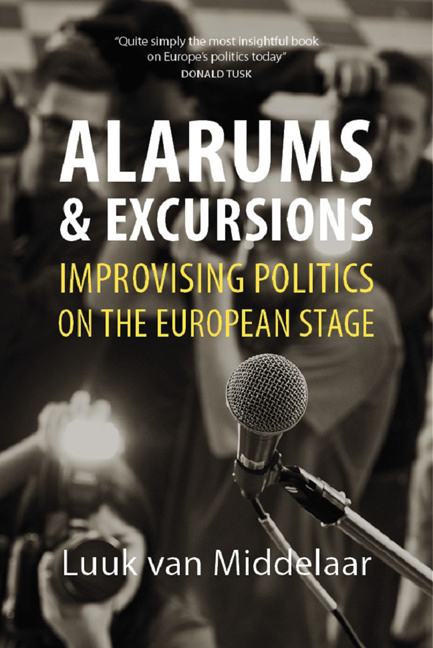2 - Negotiating: the Ukraine crisis
Published online by Cambridge University Press: 16 August 2023
Summary
The connotation of courage, which we now feel to be an indispensable quality of the hero, is in fact already present in a willingness to act and speak at all, to insert one’s own self into the world and begin a story of one’s own.
Hannah ArendtThe magnet and the border
When the Cold War ended, Western Europeans took their leave of History with a capital H. As capitalist democracies, we had attained the ultimate historical goal, as proclaimed by Fukuyama, and no longer faced an ideological rival. It was merely a matter of waiting for the rest of humanity – in Eastern Europe; in Africa; in Asia and the Middle East – to achieve its own salvation. Our task was to help everyone become just like us, through development aid and trade agreements, and by exporting our market rules and democratic values. This became the essence of the Union’s foreign policy: an extension of the politics of rules, an expansive trade policy under the banner of our best values – freedom, equality and prosperity. Rampant good intentions.
In that post-communist climate, Europe acted as a magnet to the outside world, exerting a positive influence on its surroundings. Our model had magnetic force, was perhaps even “sexy” – after all, who would not want to become like us? A flattering thought. Political scientists provided the accompanying theory of “soft power”: the ability to mobilize others in support of one’s own values, culture or reputation, as distinct from the “hard power” that relies on power-politics or military force. While the United States wielded both soft and hard power worldwide, the European Union commanded only the former. In self-conscious Brussels this was not counted as a deficiency but regarded as evidence of our progress and civilization.
This firmly buttressed self-image had one great merit: it stabilized the continent after the shock of 1989. None of the popular uprisings in Central and Eastern Europe ended with a Cromwell, Robespierre or Khomeini, instead they each opened passages to democracy. The prospect of Union membership, offered in 1993, spurred impressive transformations.
- Type
- Chapter
- Information
- Alarums and ExcursionsImprovising Politics on the European Stage, pp. 65 - 90Publisher: Agenda PublishingPrint publication year: 2019



